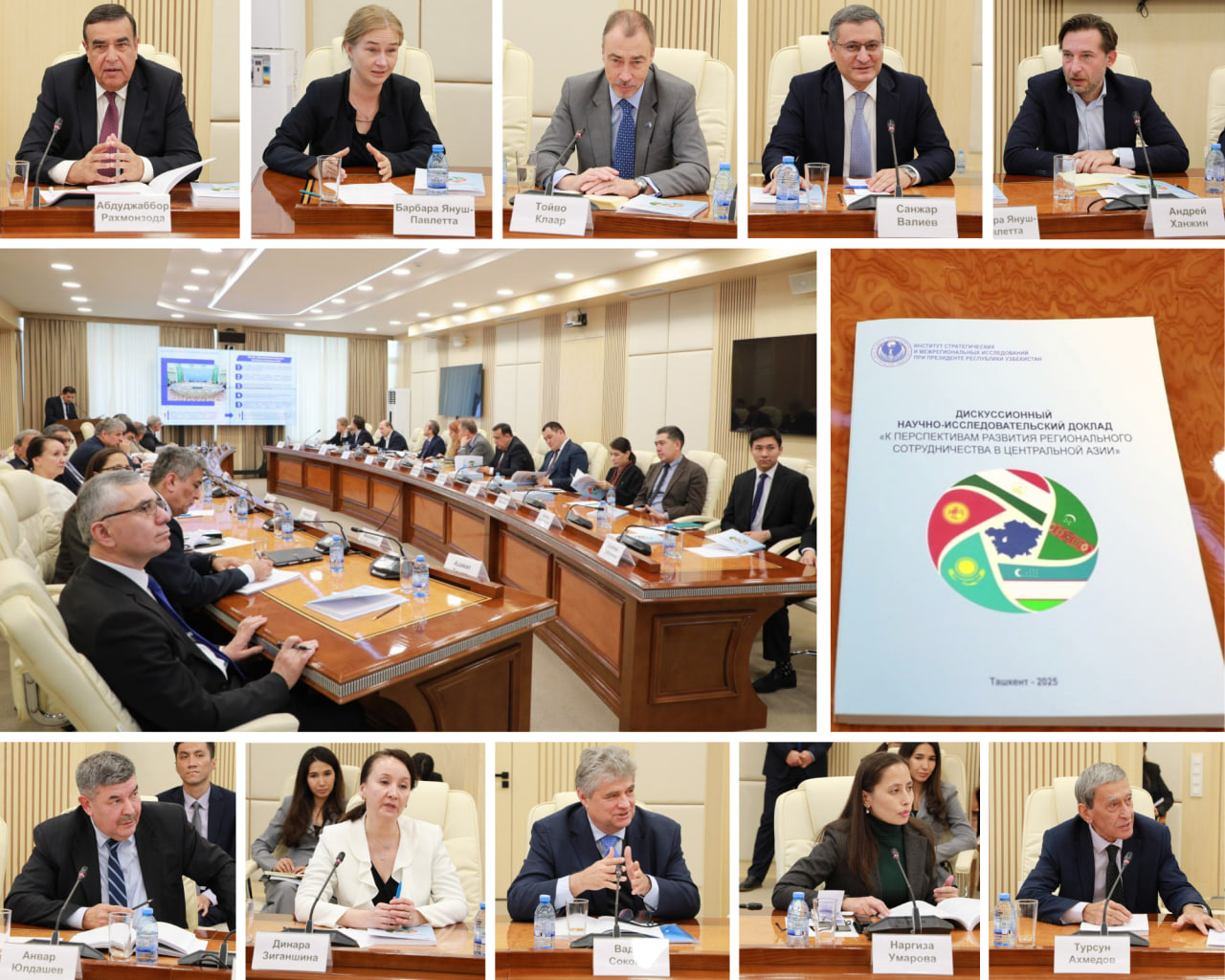ISRS hosted a presentation of a research report on regional cooperation in Central Asia

On November 14, in the lead-up to the Seventh Consultative Meeting of the Heads of State of Central Asia, the ISRS hosted a presentation of a research report entitled "Towards Prospects for the Development of Regional Cooperation in Central Asia."
The event was attended by heads and staff of diplomatic missions from Central Asian countries and the European Union, representatives of international organizations, including the Regional Center for Preventive Diplomacy for Central Asia, the offices of UN and OSCE project coordinators in Uzbekistan, as well as leading experts from national analytical and academic institutions.
It should be noted that the report was the first joint product of the expert community of Central Asian countries. It was prepared in the format of a discussion-based scientific study and is devoted to analyzing the prospects for developing regional cooperation in Central Asia.
It reflects the results of discussions held at various expert forums over the past seven years. The draft report was also presented for discussion at the 8th Central Asian Expert Forum, held on August 14-15 in Tashkent.
The document contains a retrospective analysis aimed at summarizing previous experience of regional interaction, as well as proposals for the further development of mutually beneficial cooperation.
The report presented received high praise from the event's participants. The importance and timeliness of the Uzbek side's initiative were particularly noted.

In particular, the Ambassador of Tajikistan to Uzbekistan, Abdujabbor Rahmonzoda, emphasized that “the report is a deeply systematic study and contains extensive factual material necessary for understanding the historical stages of the development of interstate cooperation in Central Asia.”
The diplomat expressed confidence that this document will serve as an important foundation for the further development of the regional intellectual community. "Such a significant work should be translated into all the languages of the region's states and become a reference book accessible to a wide range of readers," concluded A. Rahmonzoda.

In turn, the EU Ambassador to Uzbekistan, Toivo Klaar, also emphasized the relevance of the report. He noted that regional integration has never been an easy process; it requires patience and time. It took the EU 75 years, while Central Asia has achieved stunning results in a short period of time. In this context, the diplomat noted that Brussels fully supports regional rapprochement processes in Central Asia and is interested in expanding partnerships with the countries of the region.
Overall, participants acknowledged that the report is a comprehensive work with many practical proposals that can serve as a starting point for creating their own narratives regarding building regional cooperation in Central Asia.

At the same time, Barbara Janusz-Pawletta, Head of the Regional Representative Office for Central Asia of the International Water Management Institute, proposed paying greater attention to cooperation in education and science to advance Central Asia's transition to deeper integration. This, according to the expert, will help nurture a new generation that will lay the foundation for stronger regional cooperation.
At the conclusion of the event, the experts expressed interest in continuing their joint work on further research into the dynamics of regional processes and preparing publications in this area.
Next

On November 17 of this year, during the state visit of the President of Turkmenistan Serdar Berdimuhamedov to Uzbekistan, in the presence of the heads of the two states, a Memorandum on the establishment of an Uzbek-Turkmen expert council was exchanged between the Institute for Strategic and...
17.11.2025





